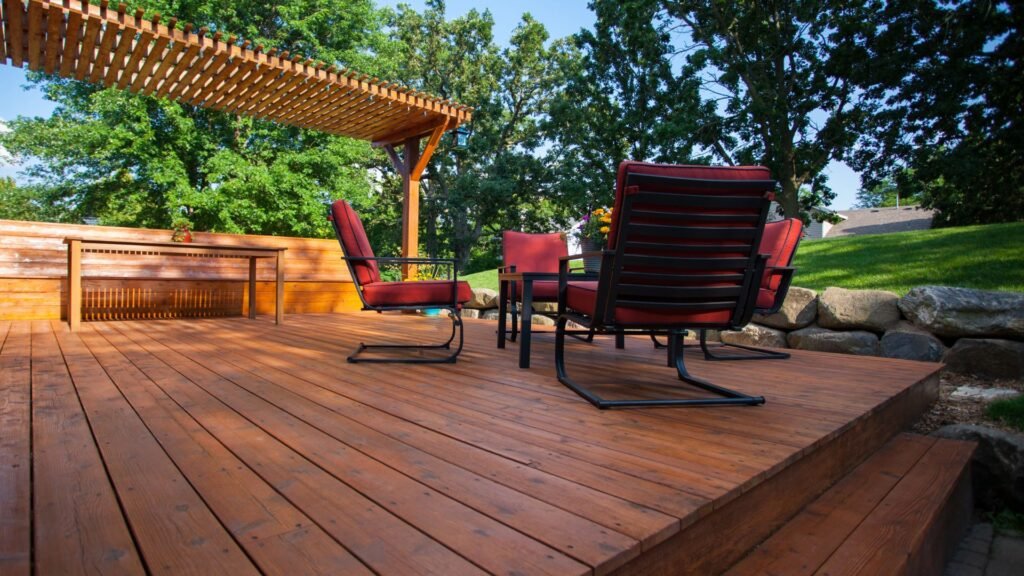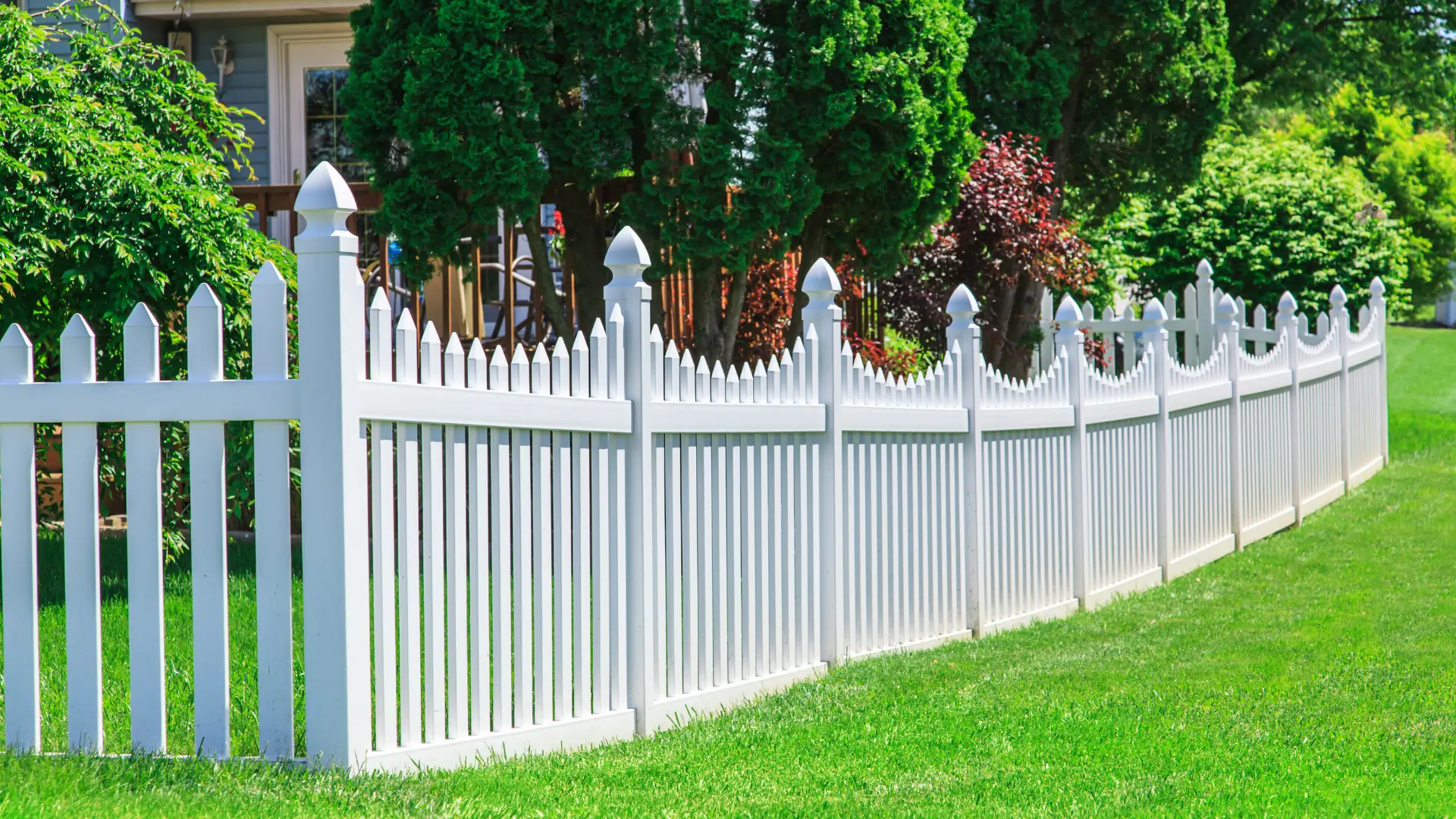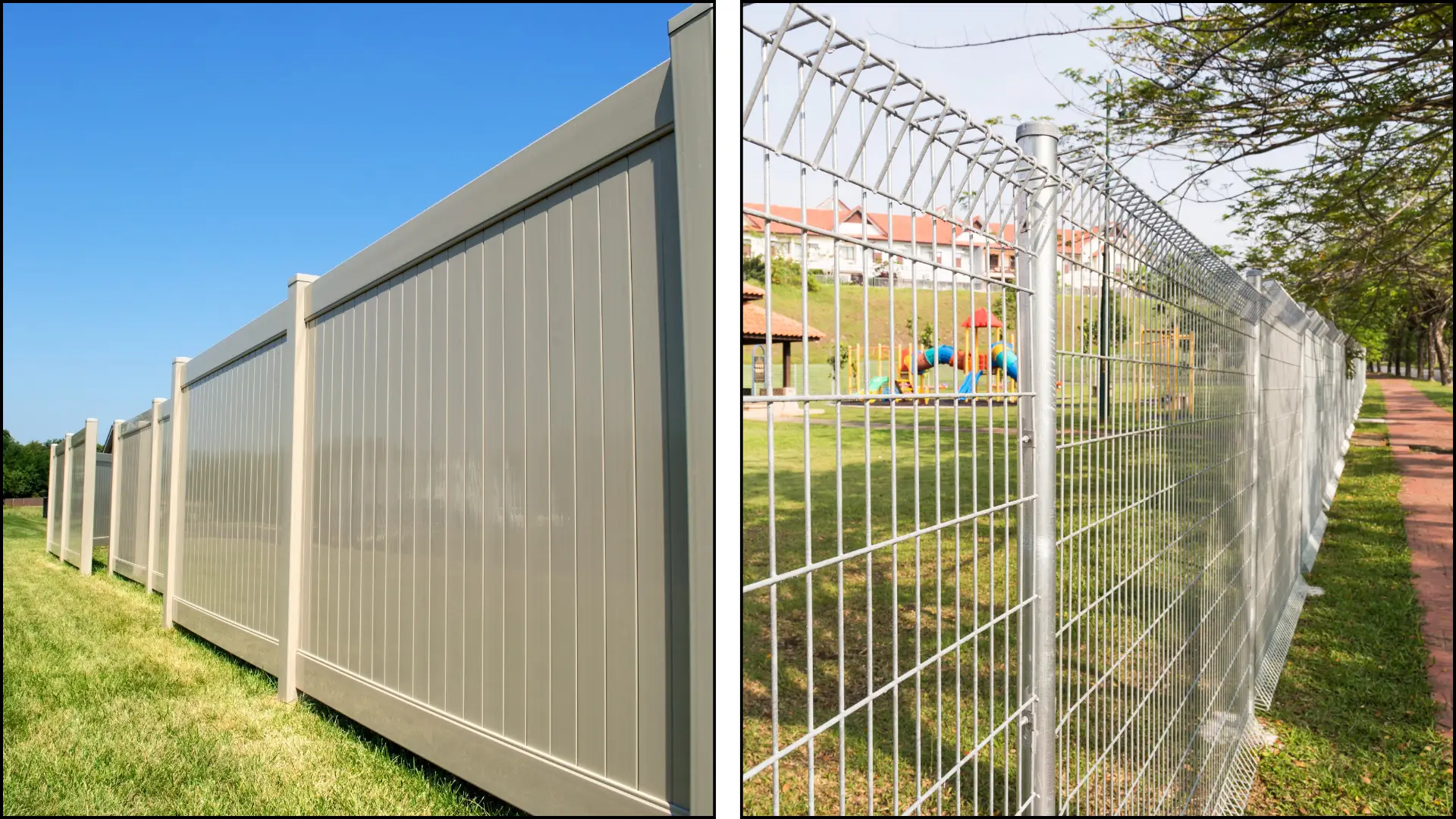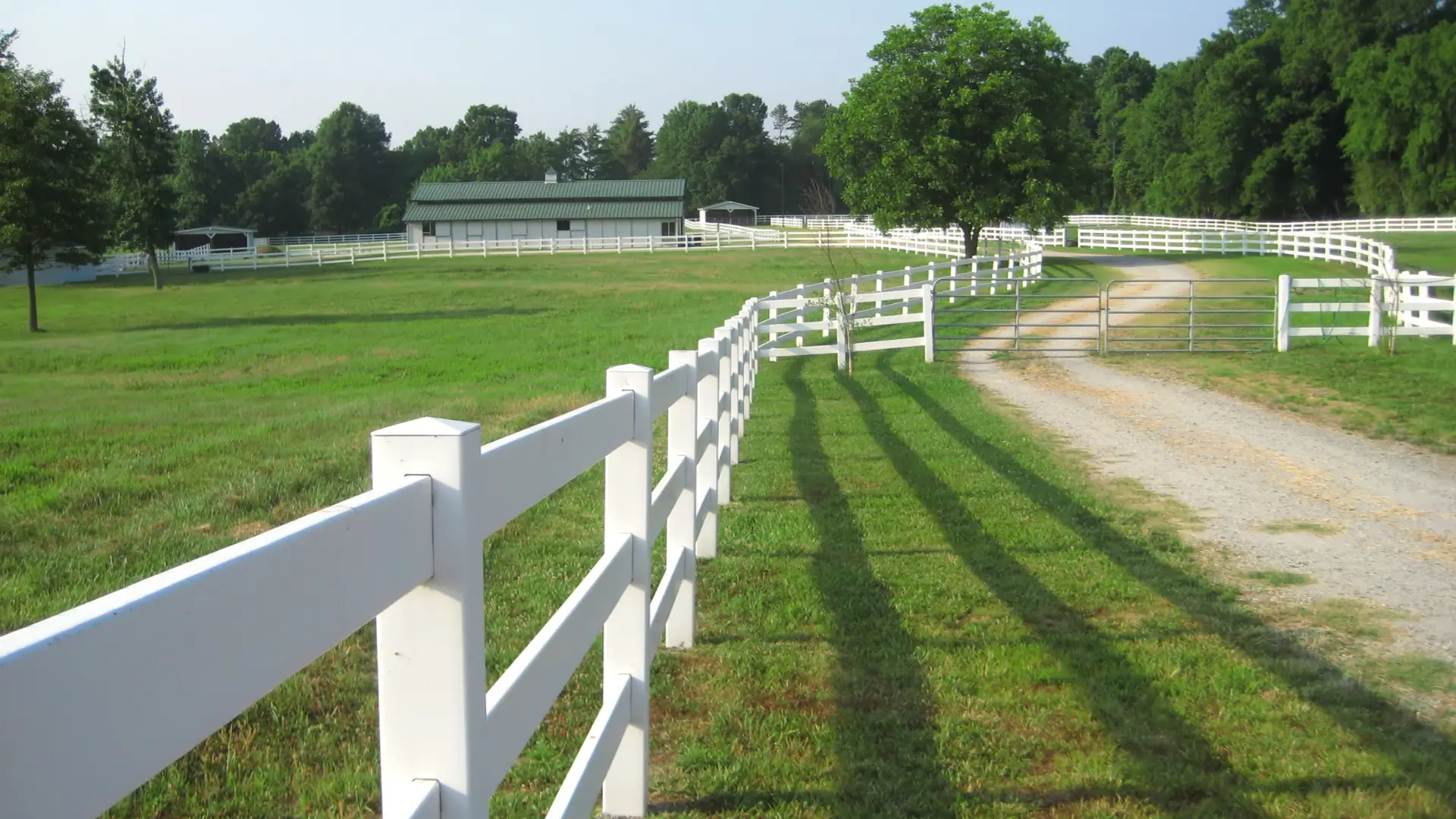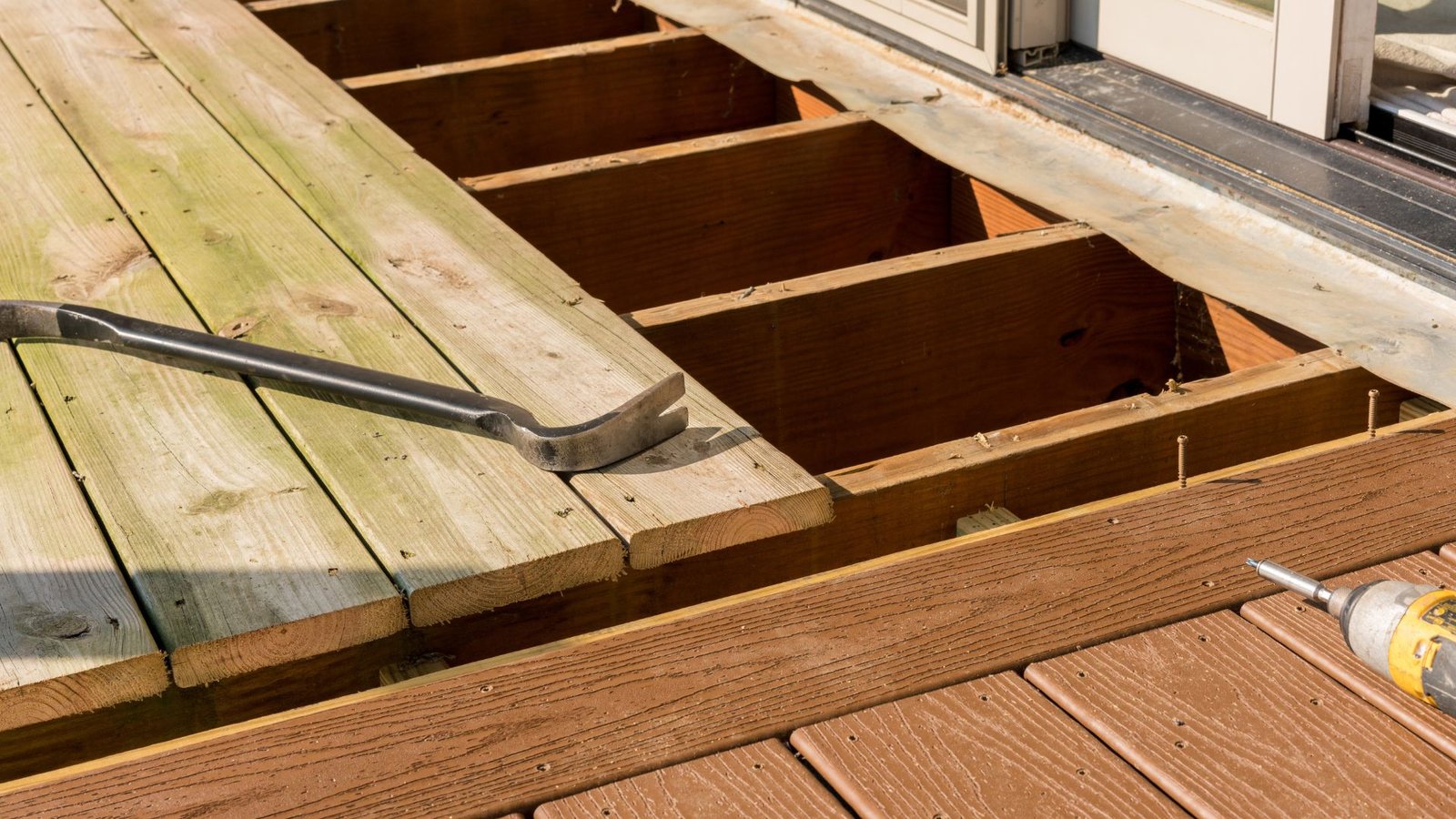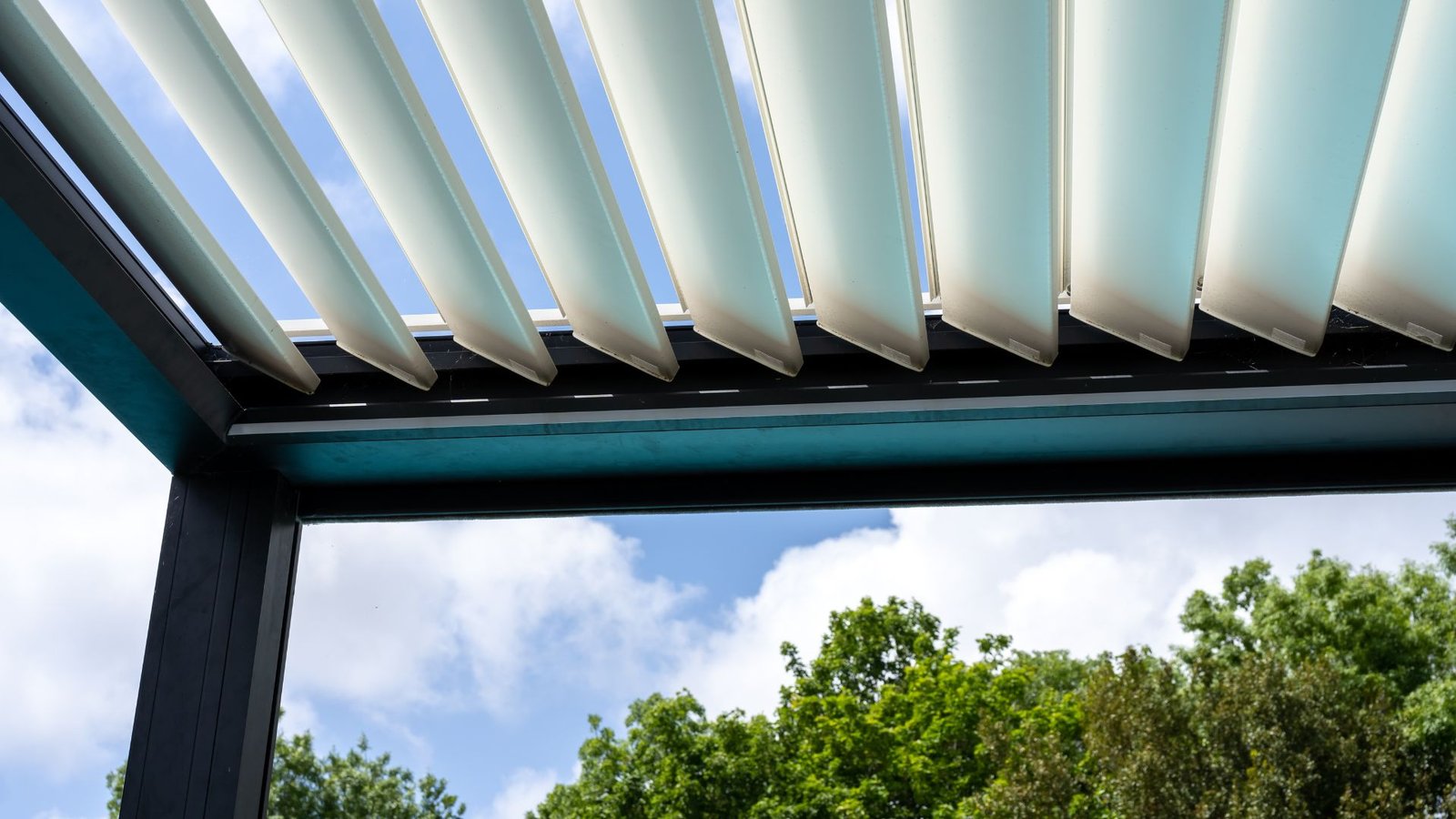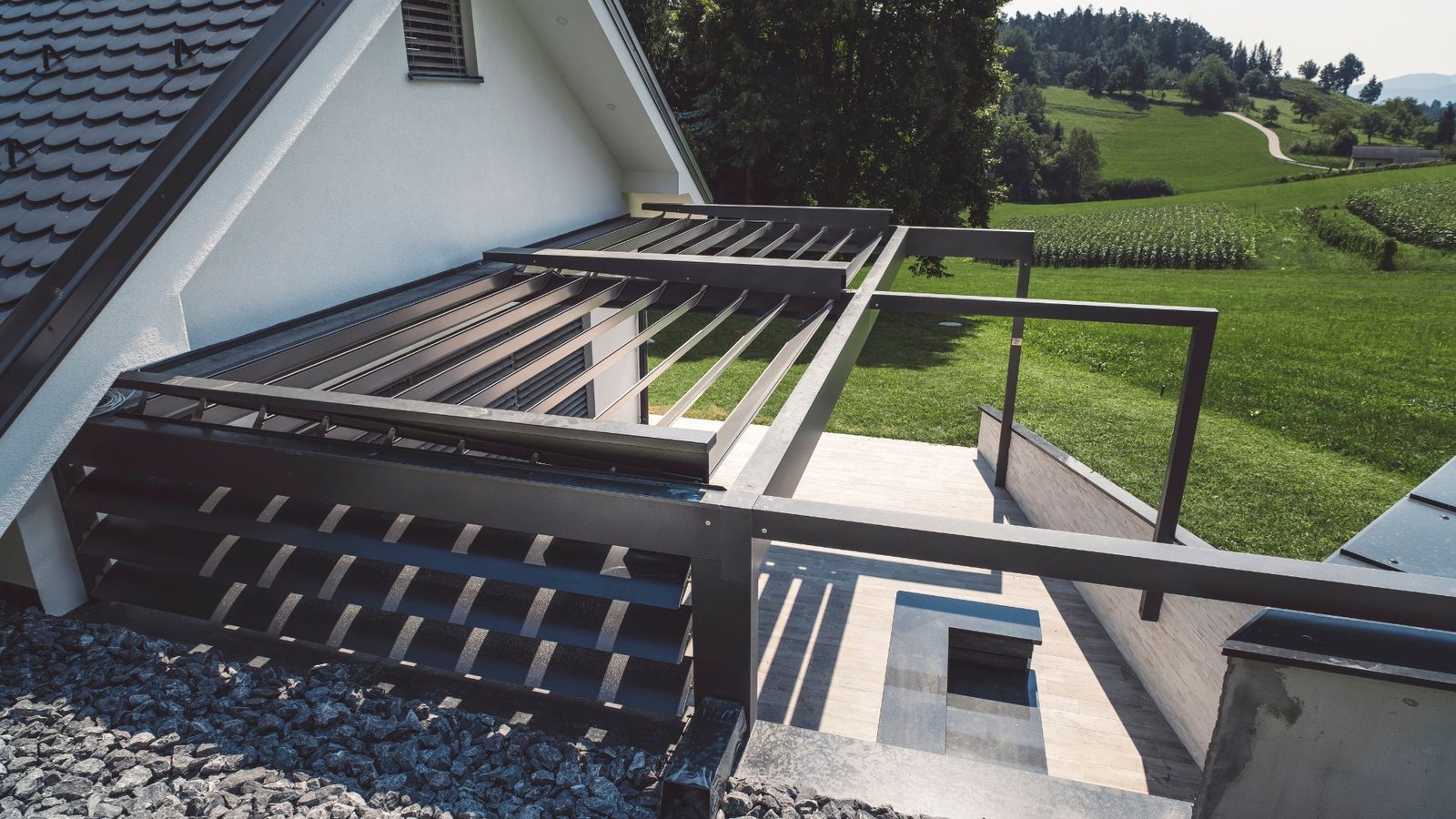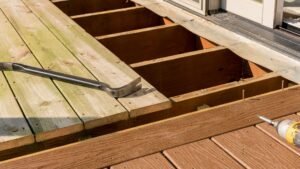Welcome to your go-to guide for understanding decking costs in New Zealand. If you’re planning to build a deck, you’re probably asking the big question, how much will it cost? The truth is, pricing can vary a lot depending on materials, size, and the complexity of your build. That’s where a decking cost calculator comes in. It helps you get a realistic estimate before talking to a builder or diving into DIY. In this post, we’ll break down what affects deck prices, how to use a calculator, and what to expect when budgeting for your outdoor space, so you can plan smarter and avoid surprise costs.
The average cost to build a deck in NZ ranges from $300 to $600 per square metre, depending on materials, size, and site conditions. Use a decking cost calculator NZ to get a quick estimate based on your specific project details.
Decking Cost Calculator NZ
Total Estimated Cost: NZD $0.00
Table Of Contents
What Affects The Cost Of Building A Deck In NZ?
Building a deck in New Zealand is a great way to expand your outdoor living space, but costs can vary widely based on a few important factors. Whether you’re planning a basic pine deck or a large, feature-rich entertainment area, knowing what drives the cost can help you set a realistic budget from the start. Here’s a breakdown of what actually affects your final price.
Timber Type (Pine, Hardwood, Composite)
The material you choose plays a big role in your overall cost.
- Pine is the most affordable option. It’s treated for outdoor use and widely available across NZ. If you’re on a budget or building a smaller deck, pine is often the go-to.
- Hardwood options like Kwila or Vitex are more expensive, but they offer natural durability and a premium finish. These are ideal if you want a high-end look and long-lasting performance.
- Composite decking is made from wood fibres and plastic. While it’s more expensive upfront, it requires less maintenance over time. Many homeowners choose it to avoid staining, sealing, or dealing with rot.Your choice affects both material and maintenance costs, so think long-term when deciding.
Size And Shape Of The Deck
A larger deck naturally costs more due to increased material and labour. But it’s not just about square metres, shape matters too.
- A simple square or rectangular design is quicker to build and uses less custom cutting.
- A curved or multi-level deck takes more time and precision, which increases both labour and material waste.
Plan the size based on how you’ll use the space, entertaining, lounging, or dining, and weigh the design complexity against your budget.
Ground Conditions And Slope
Your site plays a bigger role than many people realize. Flat, clear land is cheaper and easier to work with. But if your site is.
- Sloped
- Rocky
- Hard to access
It could mean extra foundation work, retaining walls, or custom supports. All of these add time and cost.
Before you build, get the site assessed. This helps avoid budget surprises later.
Labour And Installation Charges
Labour can make up a significant portion of the total cost, especially for larger or more complex decks. In NZ, rates vary depending on the region, the builder’s experience, and the time of year.
Some things that impact labour costs.
- Design complexity
- Site difficulty
- Custom elements like built-in seating or planter boxes
You can save by simplifying the design or choosing a builder during their off-peak season. But always hire licensed professionals to ensure safety and compliance.
Council Permits And Consents
Many homeowners overlook this step, but if your deck is over a certain height or close to a boundary, you may need consent.
- Decks over 1.5 metres high usually require council approval.
- You may also need to submit drawings or hire a designer or architect.
Permits add both time and cost to the project. Check your local council’s rules before starting to avoid fines or delays.
Extra Features (Stairs, Railings, Lighting)
The base cost of a deck covers the platform, but most homeowners want more than just a flat surface.
Extras like.
- Stairs
- Handrails or glass balustrades
- Built-in seating
- LED deck lighting
Can push up your budget quickly. These add-ons improve function and style, but each one comes with its own material and labour cost.
If you’re on a budget, choose which features matter most and leave room for upgrades later.
Use a reliable decking cost calculator to input your preferences and get a better idea of what you might spend. This way, you’re not going in blind, and you can start your project with confidence.
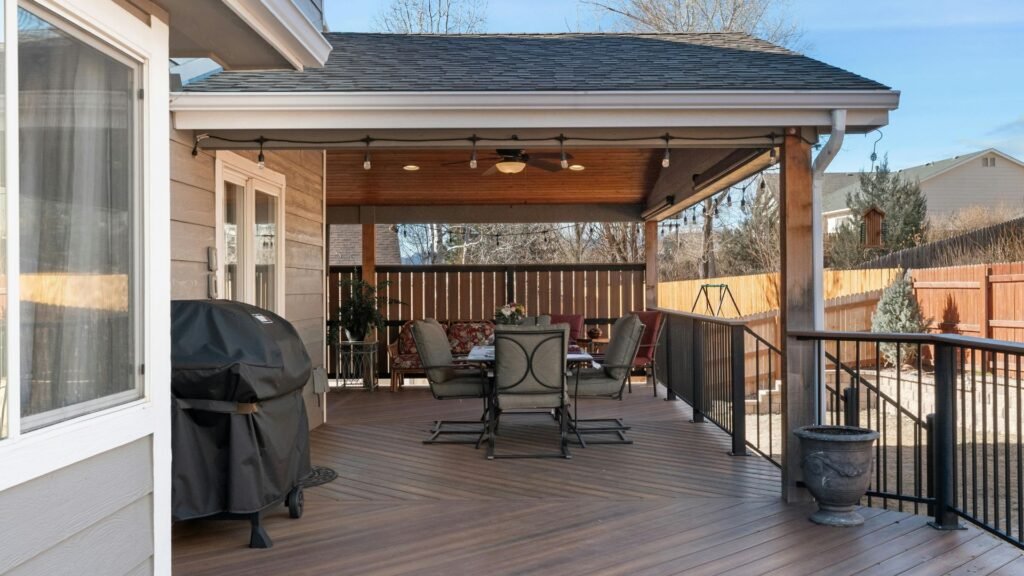
What Is A Decking Cost Calculator?
A decking cost calculator is a practical online tool that helps homeowners, DIYers, and renovators estimate the total cost of building a deck in New Zealand. Whether you’re thinking about a small upgrade or a full outdoor entertainment space, this tool gives you a solid price guide before you spend a dollar on materials or labor.
Simple Explanation Of What The Tool Does
A decking cost calculator works like a digital quote assistant. You enter some basic details about your planned deck, like size, material, and extras, and it gives you a rough estimate of how much your project will cost. It’s not a final quote from a builder, but it helps you understand the likely range so you’re not caught off guard later.
Most calculators are available on NZ hardware store websites or decking supplier pages. You don’t need to sign up or download anything, just plug in your numbers and view your estimate instantly.
How It Estimates Based On Inputs Like Material And Size
The estimate is based on several key inputs you provide.
- Deck Size: The total square metres of your deck space. A larger area means higher costs due to more materials and more labour.
- Material Type: Pine is more affordable, while hardwood and composite cost more but last longer. The calculator adjusts pricing depending on what you choose.
- Site Access And Ground Slope: Steep or tricky ground conditions may increase installation costs.
- Extra Features: Add-ons like railings, stairs, lighting, or built-in seating will boost the total cost.
Once you enter this info, the calculator uses average NZ prices to estimate your cost. These figures are based on local data, so the results are relevant to most regions in the country.
Who It’s Designed For (DIYers, Homeowners, Renovators)
Decking cost calculators are made for anyone planning a decking project, whether you’re building it yourself or hiring a professional.
- DIYers use the tool to plan their material list and check if their project fits the budget.
- Homeowners use it to see if their dream deck is affordable before committing to a contractor.
- Renovators use it to compare options, adjust designs, and make smarter spending decisions.
It’s especially helpful for people who want a rough idea of pricing before making calls or asking for quotes. That way, you can approach professionals with a clearer plan, and possibly even negotiate better.
If you’re serious about adding a deck to your property, a decking cost calculator should be one of the first tools you try. It helps you plan, budget, and build with more confidence.
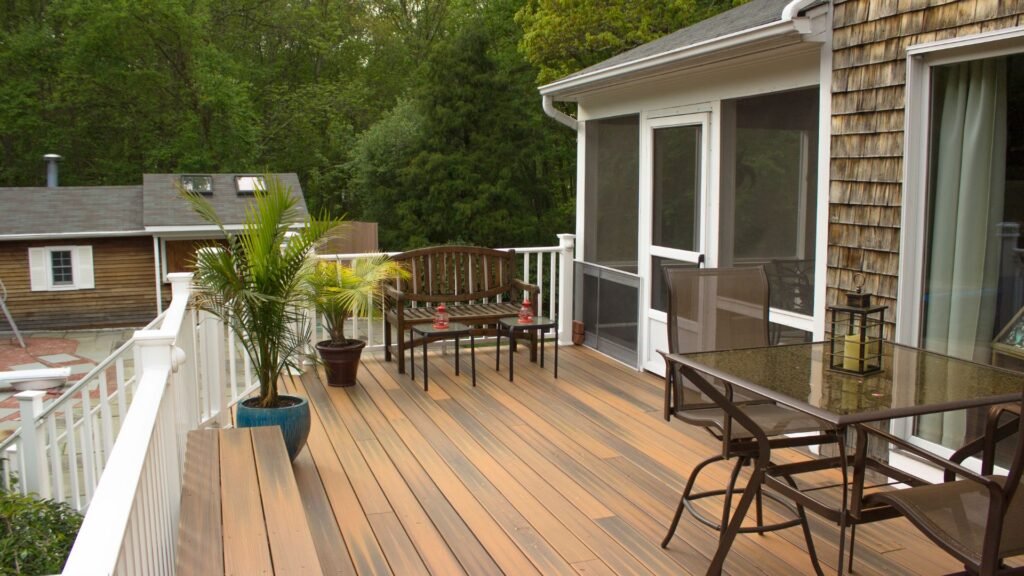
Why Use A Decking Cost Calculator In NZ?
Building a deck in New Zealand can quickly turn into a costly project if you don’t plan properly. That’s where a decking cost calculator comes in. It’s more than just a handy tool, it’s a practical starting point for anyone thinking about adding outdoor living space to their home. Whether you’re a DIYer, homeowner, or just browsing ideas, a calculator can help you make smarter, faster decisions with your money.
Helps Avoid Budget Surprises
Decks might look simple, but costs can stack up fast. Materials, labour, site conditions, and council approvals all affect your final price. A calculator gives you a clearer picture of what to expect. Instead of guessing or relying on outdated info, you’ll get a more realistic idea of your potential expenses. This helps you stay within budget and avoid unexpected costs halfway through your build.
Gives A Ballpark Estimate Before Talking To A Builder
Many people hesitate to contact a builder too early because they’re unsure if their budget is even close. A cost calculator fills that gap. It lets you play around with different sizes, materials, and extras, like stairs or railings, so you can see how each change affects the overall cost. When you do speak to a builder, you’ll already have a solid baseline and won’t go in blind.
Saves Time And Helps Compare Options
Instead of manually researching prices for every component, a calculator does the math for you. This saves time and helps you weigh the pros and cons of different materials. For example, you might see how choosing pine over composite could save thousands. It’s an easy way to test different ideas before locking in a plan.
Encourages Better Planning And Decision-Making
Planning a deck isn’t just about design, it’s about cost, timing, and priorities. A calculator makes those early decisions easier. You can set a realistic budget, know what’s feasible, and avoid wasting time on designs you can’t afford. It gives you the confidence to move forward, whether you’re hiring a builder or doing it yourself.
Using a decking cost calculator in NZ is a small step that makes a big difference. It takes the guesswork out of budgeting and gives you control from day one.
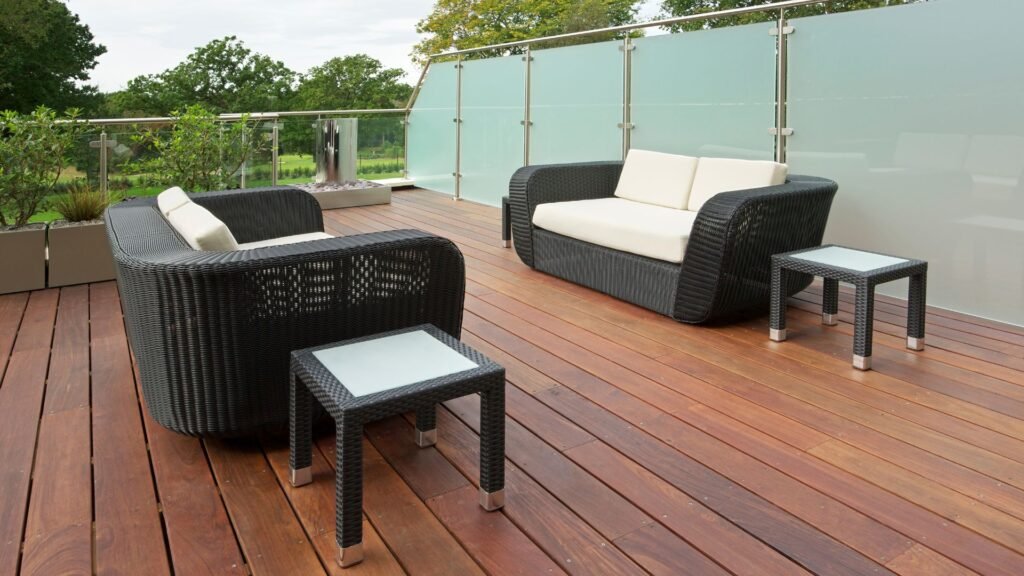
How To Use A Decking Cost Calculator (Step-By-Step)
Using a decking cost calculator in NZ is a smart way to plan your budget before starting your project. It’s simple, quick, and gives you a clear picture of what to expect in terms of cost. Whether you’re building a small patio-style deck or a larger entertaining area, following these steps will help you get an accurate estimate tailored to your project needs.
Step 1: Choose Your Deck Size
Start by entering the approximate length and width of the deck you want to build. Most calculators allow you to input these in metres. If your design is irregular, try breaking it down into separate sections and calculate each part individually. The size of your deck has the biggest impact on the total cost, so be as accurate as possible. Even a small increase in size can change your material and labour expenses.
Step 2: Select The Material
Next, choose the type of decking material you plan to use. Common options in New Zealand include treated pine, hardwood (like Kwila or Vitex), and composite decking. Each comes with its own cost range. Pine is the most affordable, while composite is known for its low maintenance and durability. The material you select not only affects price but also influences how your deck looks and feels over time.
Step 3: Enter Site Details (Ground Type, Access)
Calculators will often ask about your site conditions. This includes whether the ground is flat or sloped, and how easy it is to access the area. Why does this matter? A deck built on flat ground is quicker and cheaper to construct. If the site has uneven ground, poor access, or drainage issues, you may need additional support structures or groundwork, which adds to the cost.
Step 4: Add Extra Features (Steps, Rails, Lighting)
This step lets you customize your estimate further. You can select add-ons like stairs, handrails, privacy screens, and even built-in lighting. These extras improve safety and aesthetics, but they also increase the final price. Not all calculators will include every option, but choosing the ones that apply gives you a better idea of what the full project might cost.
Step 5: View Your Estimate
Once all the information is filled out, the calculator will show you a rough estimate of your total deck cost. This usually includes a breakdown of material costs, estimated labour, and extra features. Some tools may also show a range (e.g. $8,000–$12,000) to account for variables. Treat this number as a starting point. It’s not a quote, but it will help you decide whether to scale up, scale down, or move forward with a builder.
A decking cost calculator is a valuable tool, especially if you’re planning on building in NZ where terrain, materials, and regulations vary widely. Taking the time to input accurate details will give you the most useful results, and save you from budget surprises later on.
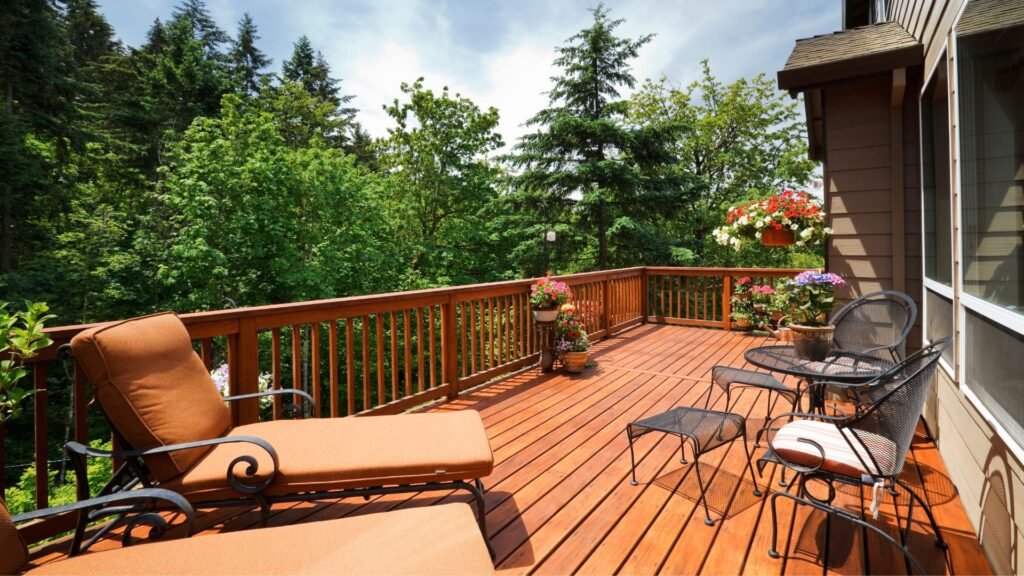
Sample Deck Cost Estimates (Using Common Scenarios)
When planning your deck project in New Zealand, it helps to look at real-world examples. These common scenarios give you a rough idea of what your decking project might cost, depending on the size, material, and features you choose. While every site is different, these sample estimates can guide your early decisions and budgeting.
Small Pine Deck On Flat Ground
If you’re building a simple, ground-level deck using treated pine, this is typically the most affordable option. It’s ideal for small outdoor areas, especially on flat terrain with easy access.
- Size: Around 10 square metres
- Material: Treated pine
- Ground type: Flat, with no major prep work
- Features: Basic structure, no stairs or railings
- Estimated Cost Range: $3,000 to $4,500 NZD
Pine is cost-effective, widely available, and easy to work with. It’s a great choice for homeowners who want a practical and budget-friendly outdoor space.
Mid-Size Hardwood Deck With Stairs
Hardwood decks offer more durability and a polished look. If you’re adding stairs and slightly elevating the deck, the labour and material costs increase, but so does the visual appeal and lifespan.
- Size: Around 20 square metres
- Material: Kwila or Vitex hardwood
- Ground type: Slight slope or uneven base
- Features: Basic stair access, simple railing, sealed finish
- Estimated Cost Range: $9,000 to $12,000 NZD
Hardwood is more expensive than pine, but it’s also more durable and resistant to weather. You’ll need to allow for staining and sealing to maintain the wood’s condition over time.
Large Composite Deck With Full Features
Composite decking is a low-maintenance, long-lasting material popular in high-end builds. If you’re going big, with multiple features like stairs, railings, and integrated lighting, you can expect a higher total cost.
- Size: Around 30 square metres
- Material: Composite (like ModWood or Trex)
- Ground type: Mixed terrain with prep required
- Features: Staircase, full balustrade, built-in lighting, hidden fasteners
- Estimated Cost Range: $18,000 to $25,000+ NZD
Composite materials last longer and don’t require sanding or staining. The upfront cost is higher, but many homeowners find the lower maintenance worth it.
These scenarios give you a ballpark idea of what to expect. Keep in mind that actual prices can vary based on location, access, labour availability, and the level of customization. Always use a decking cost calculator for a more tailored estimate, and speak with a local builder when you’re ready to move forward.
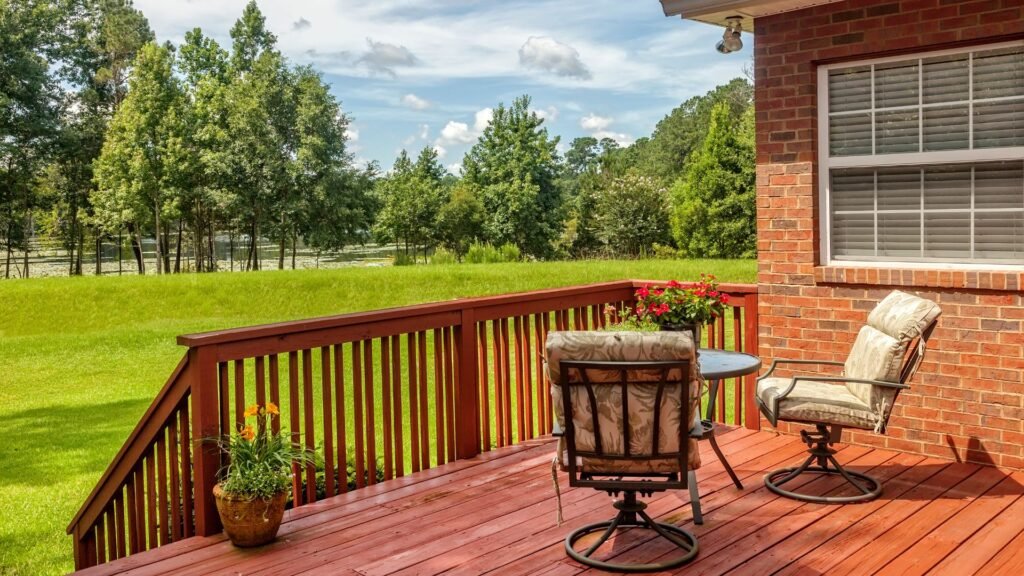
Things The Calculator May Not Include
When using a decking cost calculator in NZ, it’s important to understand that the estimate you receive is just a starting point, not a final quote. While these tools do a great job providing a quick ballpark figure based on your deck size, material, and basic layout, they often leave out several real-world costs that can impact your final budget. Here’s what many calculators don’t include, and why you should factor them in early.
Council Fees Or Inspection Costs
Most decking calculators won’t include any local council fees, building consents, or inspection charges. In New Zealand, if your deck exceeds certain height limits or connects to a dwelling, you may need formal approval. These permits can cost hundreds of dollars, and failing to plan for them might delay your project or lead to fines. Always check with your local council before starting work.
Waste Removal
Tearing down an old deck or clearing the site can produce a surprising amount of waste, timber, nails, soil, concrete, and other debris. While a calculator might show your new build price, it won’t account for skip bin hire or dump fees. If you’re managing the project yourself, don’t forget to include the cost of waste removal in your budget.
Landscaping Changes
If your backyard needs any reshaping before a deck can be built, like leveling a slope, removing trees, or fixing drainage issues, those changes come at a cost. These kinds of site-specific tasks aren’t reflected in most cost calculators, but they can significantly increase the total spend. Builders often inspect the site before quoting, and this is one of the main reasons why.
Custom Design Requests
Do you want curved edges, built-in seating, or custom railings? Maybe a split-level deck or integration with a spa or pool? Most online calculators are designed for standard rectangular decks. Custom design elements often require more labour, engineering input, and specialty materials, all of which go beyond what basic estimators cover.
Treat It As A Starting Point, Not A Final Price
The goal of using a decking cost calculator is to help you get a feel for what your project might cost, not to lock in a price. Think of it like checking airfare before booking a trip. It’s a guide, not a guarantee. Once you’ve run the numbers, talk to a builder for a detailed quote. They’ll assess your site, discuss your vision, and outline everything the calculator missed.
Taking these hidden costs into account upfront can save you stress, time, and unexpected bills later. Use the calculator to build a baseline, but always dig deeper when it comes to budgeting your dream deck.
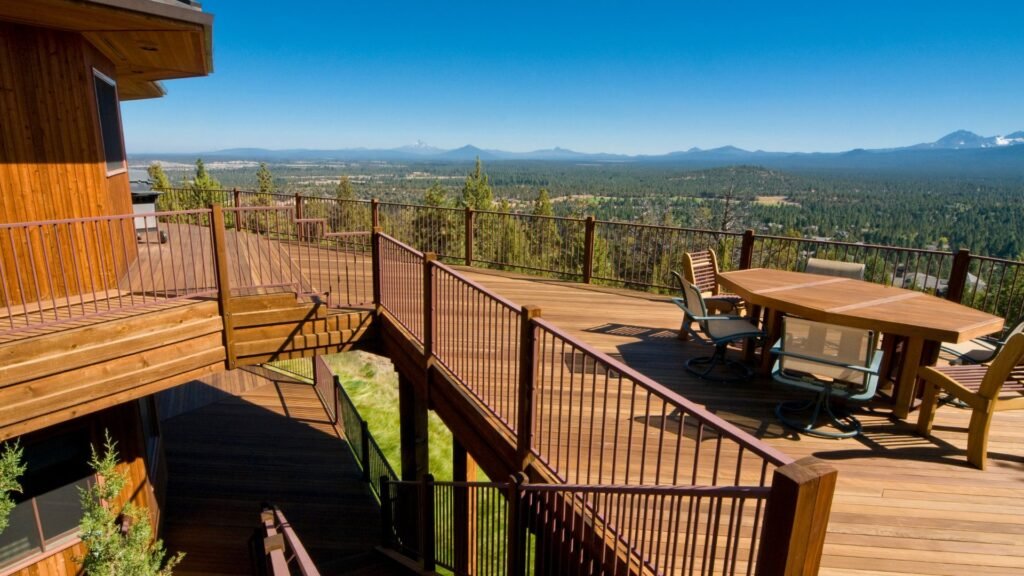
How Accurate Are Decking Cost Calculators?
Decking cost calculators are helpful tools, especially during the early planning stages of your project. But like any estimate, they come with limits. While they can give you a solid starting point, they should never be viewed as a replacement for an on-site quote from a professional. Here’s what you need to know about their accuracy.
Good For Estimates, Not Final Pricing
Decking calculators are designed to give you a general idea of what your deck might cost based on the information you provide. They consider key inputs like the deck’s size, material type, and design features. But they don’t always account for site-specific variables like soil conditions, access issues, or regional labour rates.
For example, a calculator might estimate your 20-square-metre pine deck at $6,000. That gives you a helpful ballpark figure. But once a builder inspects your sloped backyard or sees that you need consent paperwork, the actual cost could change.
Depends On How Detailed The Inputs Are
The more detailed and accurate your inputs, the better the estimate. Some calculators only ask for basic info, like length, width, and timber type. Others go further by asking about ground preparation, permits, or stair requirements.
If you choose a calculator that lets you adjust more variables, you’ll get a closer estimate to real-life costs. But even then, prices can shift depending on factors that calculators can’t predict, like sudden material price increases or extra labour needed on-site.
Still Useful For Budgeting And Setting Expectations
Even with their limitations, decking calculators are a great tool for budgeting. They help you figure out whether your dream deck fits within your spending range. You can test different materials, sizes, and features to see what works best for your budget.
They also help set expectations. Instead of guessing or going in blind, you’ll have a rough idea of how much to save or what to expect from a quote. That makes it easier to speak with contractors, ask the right questions, and avoid budget surprises down the line.
Use a decking cost calculator as a guide, not gospel. It won’t replace a builder’s quote, but it can give you the confidence to plan smarter and ask better questions before spending your money.
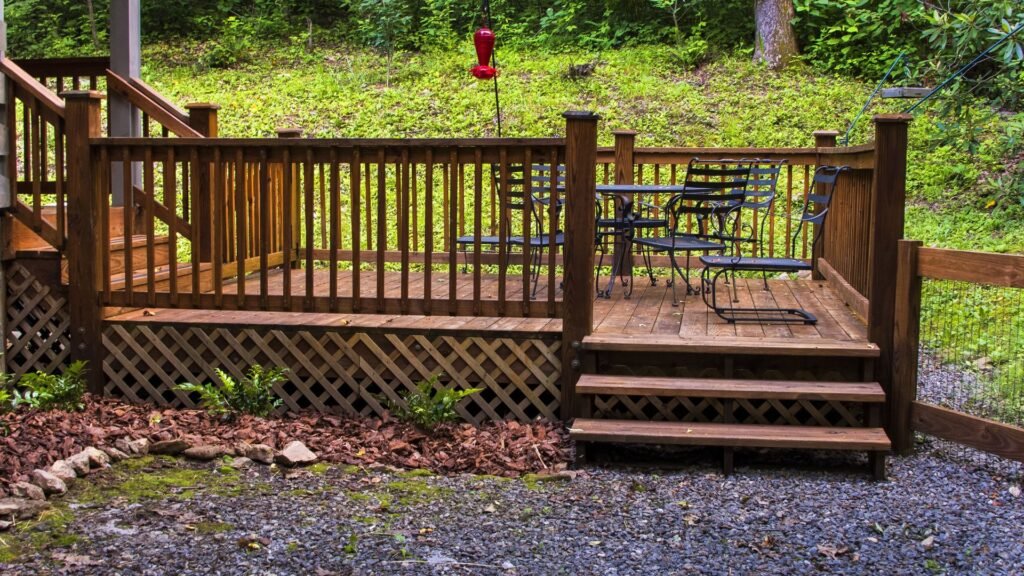
Where To Find The Best Decking Cost Calculators In NZ
When you’re planning to build a deck, having a rough cost estimate upfront makes the process smoother and less stressful. That’s where decking cost calculators come in. These tools are designed to help you understand the likely costs of your decking project before you even speak with a builder. They’re free, simple to use, and available through various New Zealand-based suppliers and building platforms.
Mitre 10 Decking Calculator
Mitre 10, one of NZ’s most trusted hardware retailers, offers an easy-to-use decking cost calculator on their website. You just need to enter your deck’s dimensions, select your preferred timber or composite material, and indicate whether you want extras like stairs or balustrades. The tool gives a quick breakdown of material quantities and estimated costs based on current store prices.
Bunnings NZ Decking Planner
Bunnings NZ provides another solid option with their decking planner and estimator tool. It walks you through each part of your project step-by-step. You can customize dimensions, choose materials, and add optional features. The tool then calculates an estimated cost and even generates a shopping list you can take to your nearest Bunnings store.
PlaceMakers Online Estimator
PlaceMakers is another go-to for Kiwis looking to build or renovate. Their decking calculator includes fields for timber type, joist spacing, and overall area. What makes this tool stand out is its accuracy in aligning with their current product offerings, which helps reduce surprises when you go to buy your materials.
Builderscrack Estimate Tool
Builderscrack isn’t a retailer, it’s a platform that connects homeowners with local contractors. Their cost estimation tool helps you figure out general pricing based on real quotes from builders across NZ. While not as detailed as a product calculator, it’s useful for getting a realistic idea of what local labour might cost in addition to materials.
Local Builders And Retailers
Many local building companies also offer their own calculators or quoting tools on their websites. These are especially useful if you already have a preferred contractor in mind. You’ll often find these calculators tailored to their services and local pricing, giving you a better feel for your regional market. It’s worth searching for deck builders in your area to see if they provide one.
Why Use A Local Calculator?
Decking costs in NZ can vary depending on your location. Labour rates, timber availability, and delivery fees can all shift slightly from Auckland to Christchurch or Wellington. Using a local calculator from a supplier or builder in your area ensures you’re getting estimates that reflect what you’ll actually pay, not just national averages.
Always Double Check With A Quote
While these calculators are great for setting expectations and planning your budget, they aren’t a replacement for a detailed quote. Once you’ve used a calculator to get your estimate, contact a builder or supplier to confirm pricing, materials, and availability. Some may even offer a free site assessment to refine the cost further.
Whether you’re building a small DIY deck or planning a large outdoor extension, starting with a good calculator will save you time and help you make smarter decisions. Try one or two of the tools listed above to get a clear picture of your budget before committing to the next step.
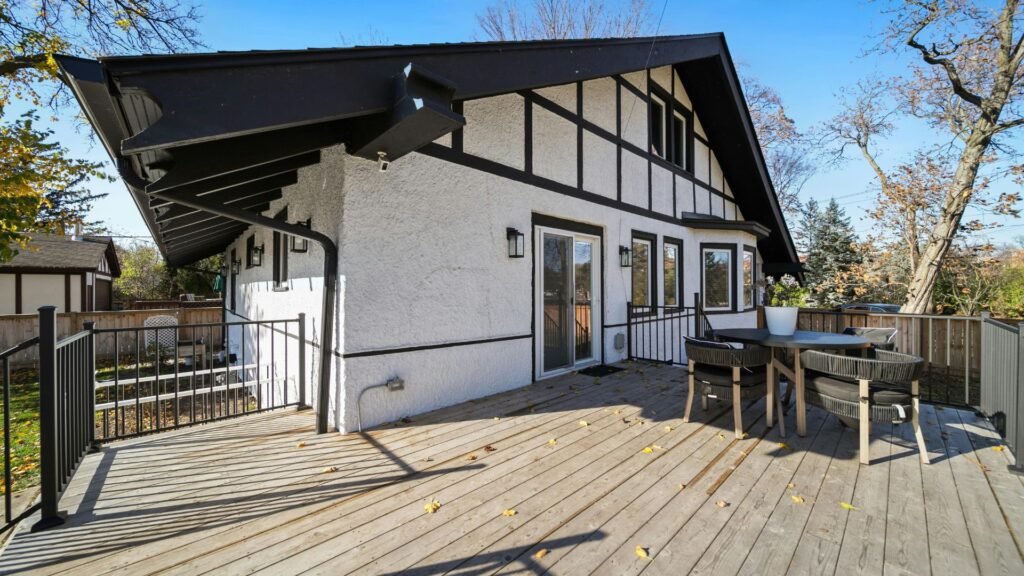
Tips To Lower Your Decking Costs
Building a deck is a great way to improve your outdoor space, but it can get expensive fast. The good news is, there are practical ways to reduce costs without sacrificing quality. Whether you’re working with a tight budget or just want to spend wisely, these tips can help you save money on your decking project in New Zealand.
Build During Off-Peak Seasons
Timing matters more than you think. Builders and suppliers are often busiest in spring and summer, which means higher demand and possibly higher rates. If you plan your project during the off-peak months, like late autumn or early winter, you may find lower prices on materials and labour. Some contractors also offer discounts during slower periods to keep work coming in year-round.
You’ll also get more flexibility in scheduling, which can speed up the project and reduce holding costs if you’re waiting on council approvals or site prep. Just make sure to check the weather conditions to avoid delays from rain or moisture-sensitive work.
Choose Cost-Effective Materials
Not all decking materials are created equal. Hardwood and composite decks look great, but they come with a higher price tag. If you’re trying to save, opt for treated pine. It’s widely available in New Zealand, durable when maintained properly, and significantly more affordable than other options.
Before deciding, weigh the pros and cons of each material. Treated pine may require more frequent maintenance, but the initial savings can be substantial. Also, keep an eye out for local supplier promotions or clearance sales on decking timber, you might score a good deal.
Keep The Design Simple
Elaborate deck designs with multiple levels, built-in seating, or custom features look impressive, but they cost more to build. The more complex the design, the more materials and labour you’ll need. For a budget-friendly project, stick to clean, rectangular layouts that are easier and faster to construct.
A simple design doesn’t mean boring. You can still create a stylish space with clever furniture placement, planters, and lighting. Focus on function over flair. What matters most is how the space works for your lifestyle.
DIY Where Safe And Legal
Doing some of the work yourself can lead to big savings especially if you already have basic tools and building experience. Common DIY tasks include staining, oiling, or painting the deck once it’s built. You might also handle site prep, such as clearing vegetation or levelling a small area.
That said, you need to stay within legal and safety limits. Structural work on decks above a certain height may require a licensed builder or council approval. Always check local regulations before starting, and if you’re unsure, talk to a professional. Mixing DIY with pro work can still reduce costs without cutting corners on safety.
These tips won’t just save you money, they’ll help you make smarter choices from day one. Whether you’re doing it yourself or hiring a builder, a little planning goes a long way. Start with a realistic budget, use a decking cost calculator to guide your decisions, and look for savings at every stage of the project.
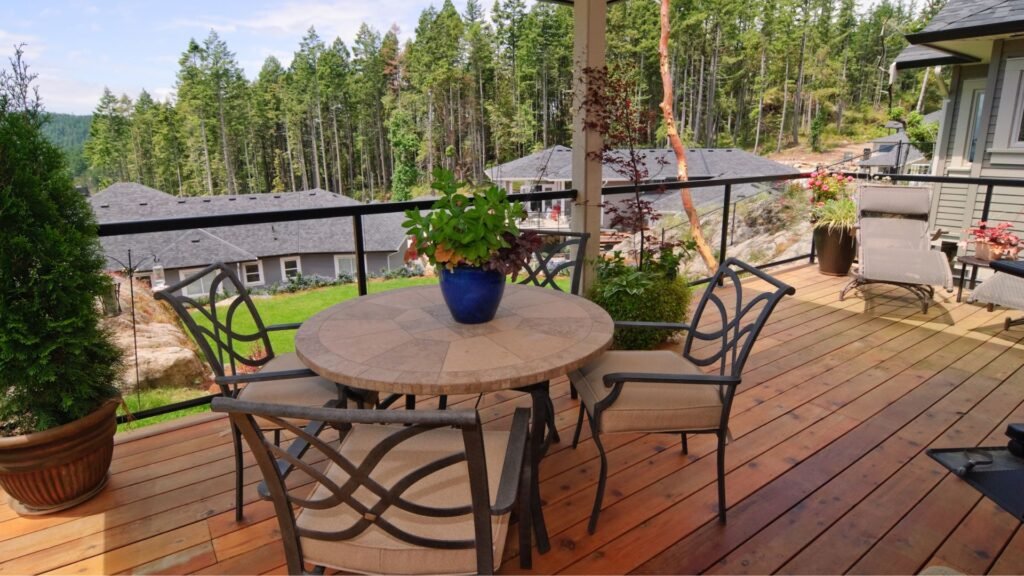
When To Talk To A Professional Builder
Building a deck can seem simple on the surface, but there are situations where calling in a professional isn’t just helpful, it’s necessary. If your project involves complex details, or you’re unsure about permits and site conditions, it’s time to get expert help. Below, we’ll walk you through exactly when you should reach out to a licensed builder and what to have ready when you do.
Permits And Structural Advice
If your deck will be more than 1.5 metres off the ground, attached to your home, or includes features like a roof or railing, you may need building consent from your local council. A licensed builder understands what’s required and can guide you through the paperwork, inspections, and timelines. Trying to figure this out on your own can delay your project or lead to compliance issues. A builder ensures your deck meets safety standards and local building codes from the start.
Complex Designs Or Uneven Sites
Thinking about building a multi-level deck? Want a wraparound layout with built-in lighting or glass balustrades? These features aren’t as simple as laying timber in a straight line. Complex designs often involve structural considerations that need professional planning. The same goes for decks built on sloped or uneven ground. A builder will know how to create a solid foundation, ensure drainage, and adjust the structure to suit your landscape.
Ready For A Formal Quote
Once you’ve used a decking cost calculator and you’re serious about moving forward, it’s time to get a real quote. A builder can visit your site, take accurate measurements, and factor in things the calculator can’t, like access difficulty, waste removal, or custom finishes. This quote is what you’ll use to budget your project properly and avoid surprise expenses later.
What To Bring When Contacting A Builder
To make the most of your first conversation with a builder, be prepared. Here’s what to bring or have ready.
- A rough sketch or description of your desired deck layout
- The dimensions you have in mind (length, width, height)
- The material you prefer (pine, hardwood, composite)
- Photos of the site where the deck will go
- Any features you want to include (stairs, lights, seating)
- Your estimated budget range
- Details about site access or obstacles (fences, slopes, etc.)
- Questions about permits or timelines
This info helps the builder understand your vision and provide accurate advice or pricing. It also shows you’re serious and well-prepared, which makes the process smoother for both sides.
Talking to a professional builder early can save you time, money, and stress. Even if you’re confident with DIY, having expert input ensures your deck is safe, durable, and built to last.
Use our free Decking Cost Calculator NZ to get a quick, clear estimate for your new deck. No guesswork. Just accurate pricing tailored to your location, materials, and size.
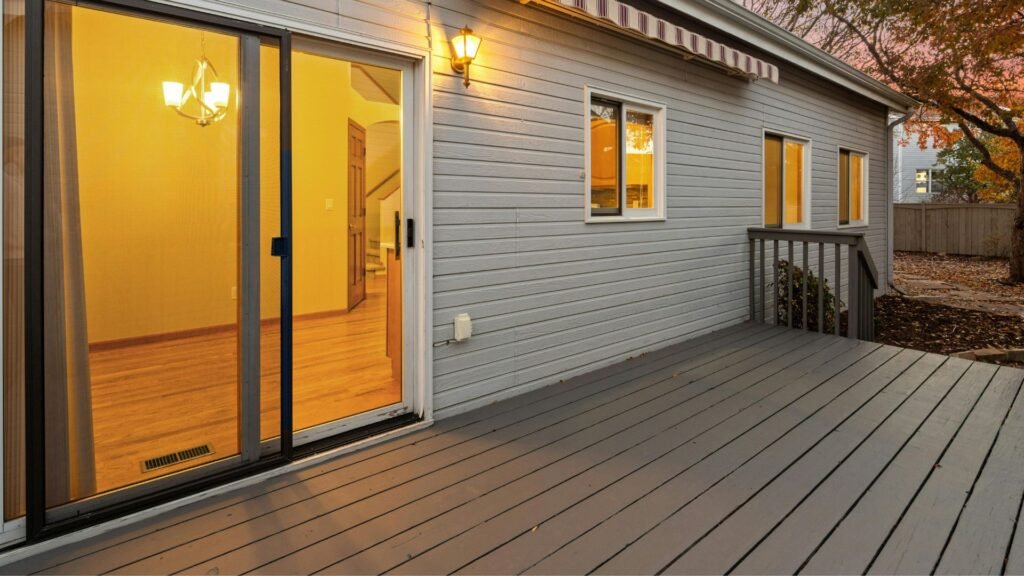
FAQs: About Decking Cost Calculator NZ
What is a decking cost calculator?
A decking cost calculator is an online tool that helps you estimate the cost of building a deck based on your selected materials, deck size, site conditions, and additional features like stairs or railings.
Is a decking cost calculator accurate?
It provides a good estimate but not an exact quote. The accuracy depends on how detailed and accurate your inputs are. For complex projects, it’s best to consult a builder for a precise quote.
How much does decking cost in New Zealand?
Decking costs typically range from $300 to $600+ per square metre. Pine is usually the most affordable option, while hardwood and composite decks cost more due to material and labour.
What factors affect the cost of a deck in NZ?
Key cost factors include the type of timber or material used, the size of the deck, slope or ground conditions, labour charges, council consents, and custom features like lighting or balustrades.
Can I use a decking calculator for DIY projects?
Yes. A decking calculator is useful for both DIYers and those hiring professionals. It helps with planning and setting a realistic budget before starting the project.
Do I need council consent to build a deck in NZ?
It depends on the height and complexity. Decks over 1.5 metres in height or those attached to a dwelling may require consent. Always check with your local council before starting.
What’s the cheapest decking material in NZ?
Treated pine is usually the most budget-friendly option. It’s widely available, easy to install, and offers decent durability if properly maintained.
Where can I find a good decking calculator for NZ?
Many NZ-based hardware stores and building supply websites offer free decking calculators, such as Mitre 10, Bunnings NZ, and PlaceMakers.
How can I reduce the cost of building a deck?
Choose simpler designs, use cost-effective materials, avoid unnecessary extras, and build during off-peak seasons. If possible, do part of the work yourself under legal and safe guidelines.
Should I get a quote even after using a calculator?
Yes. A calculator gives you a good estimate, but a licensed builder can assess site-specific factors and provide an accurate, detailed quote tailored to your needs.
Conclusion
Making informed choices starts with understanding your costs, and that’s especially true when planning a decking project in New Zealand. Knowing your numbers early helps you avoid budget surprises and gives you confidence when comparing materials, choosing design features, or talking to a builder. A decking cost calculator is a simple but powerful tool that gives you clarity from the start. Before making any commitments or shopping for timber, take a few minutes to try one out, it’s quick, free, and can save you from costly guesswork. Once you have your estimate, you’ll be better prepared to move forward with the next steps, whether that’s speaking to a local builder, gathering quotes, or checking off your planning checklist.
About the Author:
Mike Veail is a recognized digital marketing expert with over 6 years of experience in helping tradespeople and small businesses thrive online. A former quantity surveyor, Mike combines deep industry knowledge with hands-on expertise in SEO and Google Ads. His marketing strategies are tailored to the specific needs of the trades sector, helping businesses increase visibility and generate more leads through proven, ethical methods.
Mike has successfully partnered with numerous companies, establishing a track record of delivering measurable results. His work has been featured across various platforms that showcase his expertise in lead generation and online marketing for the trades sector.
Learn more about Mike's experience and services at https://theleadguy.online or follow him on social media:

